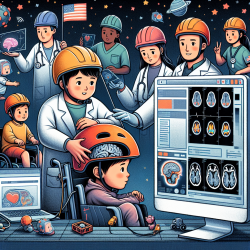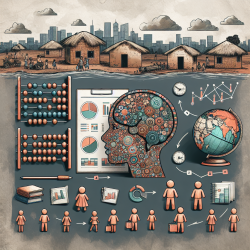As a practitioner in the field of speech-language pathology, it is imperative to continually seek out and implement evidence-based strategies to enhance the functional performance of children diagnosed with developmental delays (DD). The study titled Functional performance of school children diagnosed with developmental delay up to two years of age offers valuable insights into the challenges and potential interventions for this population.
The study, conducted by Dornelas and Magalhães (2016), aimed to compare the functional performance of children diagnosed with DD up to two years of age with their typically developing peers at seven to eight years of age. The results indicated significant disparities in motor skills, school participation, and academic performance between the two groups.
Key Findings
- Children with DD exhibited lower motor skills compared to their typically developing peers.
- Only 22.2% of children with DD showed adequate school participation, compared to 66.7% of typically developing children.
- 53.3% of children with DD achieved the expected academic performance for their school level, though with limitations in some activities.
- Family environment indicators such as diversity of activities and parental involvement at home were significantly lower in the DD group.
Implications for Practice
The findings underscore the importance of early and continuous intervention for children with DD. Here are some strategies practitioners can implement to improve outcomes:
- Early Identification and Intervention: Early diagnosis and intervention are crucial. Use standardized tools like the Movement Assessment Battery for Children (MABC-2) and the School Function Assessment (SFA) to identify areas of need.
- Multidisciplinary Approach: Collaborate with occupational therapists, physical therapists, and educators to create a comprehensive intervention plan that addresses motor skills, cognitive development, and social participation.
- Parental Involvement: Encourage parents to engage in diverse activities with their children at home. Provide them with resources and strategies to support their child's development.
- School-Based Interventions: Implement individualized education plans (IEPs) that include specific goals for motor skills, academic performance, and social participation. Regularly monitor progress and adjust interventions as needed.
Encouraging Further Research
While this study provides valuable insights, further research is needed to explore the long-term outcomes of children with DD and the effectiveness of various interventions. Practitioners are encouraged to stay informed about the latest research and incorporate new findings into their practice.
To read the original research paper, please follow this link: Functional performance of school children diagnosed with developmental delay up to two years of age.










